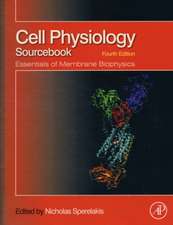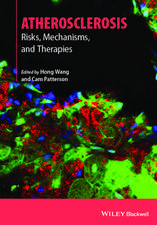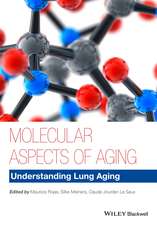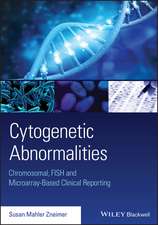Asymmetric Cell Division in Development, Differentiation and Cancer: Results and Problems in Cell Differentiation, cartea 61
Editat de Jean-Pierre Tassan, Jacek Z. Kubiaken Limba Engleză Hardback – 25 apr 2017
To underline such developmental correlations, readers will for example gain insights into stem cell fate and tumor growth. In turn, subsequent chapters include descriptions of asymmetric cell division from unicellular organisms to humans in both physiological and pathological conditions. The book also illustrates the importance of this process for evolution and our need to understand the background mechanisms, offering a valuable guide not only for students in the field of developmental biology but also for experienced researchers from neighboring fields.
| Toate formatele și edițiile | Preț | Express |
|---|---|---|
| Paperback (1) | 1114.02 lei 6-8 săpt. | |
| Springer International Publishing – 21 iul 2018 | 1114.02 lei 6-8 săpt. | |
| Hardback (1) | 1120.18 lei 6-8 săpt. | |
| Springer International Publishing – 25 apr 2017 | 1120.18 lei 6-8 săpt. |
Din seria Results and Problems in Cell Differentiation
- 18%
 Preț: 1391.73 lei
Preț: 1391.73 lei - 15%
 Preț: 597.16 lei
Preț: 597.16 lei -
 Preț: 387.96 lei
Preț: 387.96 lei - 5%
 Preț: 373.33 lei
Preț: 373.33 lei -
 Preț: 382.18 lei
Preț: 382.18 lei -
 Preț: 385.08 lei
Preț: 385.08 lei - 15%
 Preț: 644.82 lei
Preț: 644.82 lei - 15%
 Preț: 634.00 lei
Preț: 634.00 lei -
 Preț: 387.20 lei
Preț: 387.20 lei -
 Preț: 387.75 lei
Preț: 387.75 lei - 15%
 Preț: 643.34 lei
Preț: 643.34 lei -
 Preț: 382.18 lei
Preț: 382.18 lei -
 Preț: 394.71 lei
Preț: 394.71 lei -
 Preț: 390.08 lei
Preț: 390.08 lei -
 Preț: 381.43 lei
Preț: 381.43 lei -
 Preț: 385.47 lei
Preț: 385.47 lei -
 Preț: 385.47 lei
Preț: 385.47 lei -
 Preț: 391.22 lei
Preț: 391.22 lei - 18%
 Preț: 1227.04 lei
Preț: 1227.04 lei - 20%
 Preț: 561.67 lei
Preț: 561.67 lei - 5%
 Preț: 1418.27 lei
Preț: 1418.27 lei -
 Preț: 386.00 lei
Preț: 386.00 lei -
 Preț: 377.95 lei
Preț: 377.95 lei -
 Preț: 391.61 lei
Preț: 391.61 lei -
 Preț: 388.52 lei
Preț: 388.52 lei - 18%
 Preț: 1380.63 lei
Preț: 1380.63 lei - 15%
 Preț: 639.25 lei
Preț: 639.25 lei - 18%
 Preț: 1220.12 lei
Preț: 1220.12 lei - 15%
 Preț: 642.51 lei
Preț: 642.51 lei - 15%
 Preț: 640.37 lei
Preț: 640.37 lei - 18%
 Preț: 1222.49 lei
Preț: 1222.49 lei - 18%
 Preț: 946.41 lei
Preț: 946.41 lei -
 Preț: 387.38 lei
Preț: 387.38 lei - 18%
 Preț: 1228.47 lei
Preț: 1228.47 lei - 15%
 Preț: 642.51 lei
Preț: 642.51 lei - 18%
 Preț: 1663.00 lei
Preț: 1663.00 lei - 18%
 Preț: 1225.62 lei
Preț: 1225.62 lei
Preț: 1120.18 lei
Preț vechi: 1366.08 lei
-18% Nou
Puncte Express: 1680
Preț estimativ în valută:
214.34€ • 223.79$ • 177.40£
214.34€ • 223.79$ • 177.40£
Carte tipărită la comandă
Livrare economică 04-18 aprilie
Preluare comenzi: 021 569.72.76
Specificații
ISBN-13: 9783319531496
ISBN-10: 3319531492
Pagini: 391
Ilustrații: VI, 421 p. 96 illus., 81 illus. in color.
Dimensiuni: 155 x 235 x 24 mm
Greutate: 0.77 kg
Ediția:1st ed. 2017
Editura: Springer International Publishing
Colecția Springer
Seria Results and Problems in Cell Differentiation
Locul publicării:Cham, Switzerland
ISBN-10: 3319531492
Pagini: 391
Ilustrații: VI, 421 p. 96 illus., 81 illus. in color.
Dimensiuni: 155 x 235 x 24 mm
Greutate: 0.77 kg
Ediția:1st ed. 2017
Editura: Springer International Publishing
Colecția Springer
Seria Results and Problems in Cell Differentiation
Locul publicării:Cham, Switzerland
Cuprins
1 Modeling Asymmetric Cell Division in Caulobacter crescentus Using a Boolean Logic Approach.- 2 Spatiotemporal models of asymmetric cell division cycle in Caulobacter crescentus.- 3 Intrinsic and extrinsic determinants linking spindle pole fate, spindle polarity and asymmetric cell division in the budding yeast S. cerevisiae.- 4 Wnt signaling polarizes C. elegans asymmetric cell divisions during development.- 5 Asymmetric cell division in the one-cell C.elegans embryo: multiple steps to generate cell size asymmetry.- 6 Size matters: how C. elegans asymmetric divisions regulate apoptosis.- 7 The midbody and its remnant in cell polarization and asymmetric cell division.- 8 Drosophila melanogaster neuroblasts: a model for asymmetric stem cell divisions.- 9 Asymmetric divisions in oogenesis.- 10 Asymmetric localization and distribution of factors determining cell fate during early development of Xenopus laevis.- 11 Asymmetries in cell division, cell size and furrowing in the Xenopuslaevis embryo.- 12 Asymmetric and unequal cell divisions in ascidian embryos.- 13 Asymmetries and symmetries in the mouse oocyte and zygote.- 14 Symmetry does not come for free – cellular mechanisms to achieve a symmetric cell division.- 15 A Comparative Perspective on Wnt/β-catenin Signalling in Cell Fate Determination.- 16 Extracellular regulation of the mitotic spindle and fate determinants driving asymmetric cell division.- 17 Regulation of asymmetric cell division in mammalian neural stem and cancer precursor cells.- 18 Molecular programs underlying asymmetric stem cell division and their disruption in malignancy.
Textul de pe ultima copertă
This book provides readers with an overview of the frequent occurrence of asymmetric cell division. Employing a broad range of examples, it highlights how this mode of cell division constitutes the basis of multicellular organism development and how its misregulation can lead to cancer.
To underline such developmental correlations, readers will for example gain insights into stem cell fate and tumor growth. In turn, subsequent chapters include descriptions of asymmetric cell division from unicellular organisms to humans in both physiological and pathological conditions. The book also illustrates the importance of this process for evolution and our need to understand the background mechanisms, offering a valuable guide not only for students in the field of developmental biology but also for experienced researchers from neighboring fields.
Caracteristici
Reviews the process of asymmetric cell division extensively Highlights similarities between single-cell and multi-cellular organisms in development Broadens the understanding of tumor development after misregulation in stem cells









